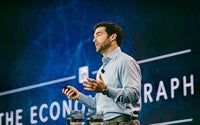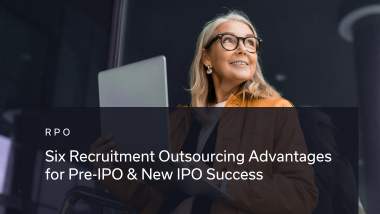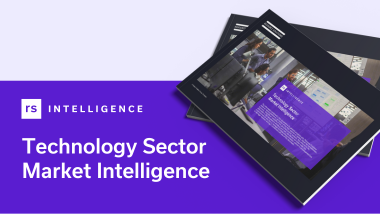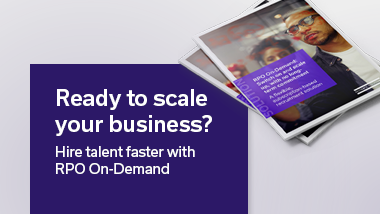Take ESG seriously - because your next generation of workers do
Gen Z and Millennials are predicted to make up the majority of the global workforce by 2030, and they value environmental, social, and governance (ESG) commitments far more than previous generations of workers.
Currently, ESG sits largely in the domain of corporate boards, executives, and shareholders so, unsurprisingly, the majority of ESG frameworks and audits are designed with these stakeholders in mind. By focusing primarily on reporting and international consistency – as seen with The Carbon Disclosure Project and The United Nations Sustainable Development Goals, for example – current ESG frameworks are suited and scaled for institutions and investors, as opposed to individuals. This is problematic as organisations are unlikely to achieve their sustainability objectives without engaging their employees (and future employees). In response to this, we have formulated an Employee Sustainability Proposition (ESP) framework to audit current approaches, policies, commitments and benefits. This enables the deliverability of ESG commitments in a way that can be seen day to day which will, in turn, engage employees with the ESG commitments of the business.
What is ESP?
An ESP is the environmental, social and governance promises made by an employer to employees, in return for their commitment. Created by our Responsible Business Practitioners, our Employee Sustainability Audit enables the evaluation of policies, approaches, and employee benefits against an academically informed best-in-class framework.
Our proprietary model audits 85 data points through five employee “spheres of interest” and analyses how the Employee Sustainability Proposition is communicated to current and potential employees. This promise involves the benefits and rewards employees can expect to receive, and as a key part of an Employer Brand, should characterise the substance, values, and integrity of organisations. It outlines why an organisation is unique, how they fulfil employee needs, and why top talent should want to work there.
This is an issue facing organisations and HR leaders as the pandemic and ensuing lockdowns caused a shift in the national workforce’s view towards ESG and work/life balances. And while employees take an interest in an organisations ESG commitments on a large, corporate scale, they are more invested in what these ESG commitments will mean or do for them personally.
Why will ESP be important in 2024?
The core pillars of your ESP (environmental ,wellness, purpose, belonging and governance) – are of increasing importance as climate change is beginning to directly impact so many and newer entrants to the job market are increasingly demanding safe, inclusive and responsible workplaces.
The global workforce has also become multigenerational, spanning three generations. Our own recent data suggests that by 2030, 34% of the global workforce will be Gen Z and 32% will be Millennials – across both of these groups, many value ESG as a top priority. Additionally, we know that:
31% of white-collar job applicants will turn down an offer if the employer’s values on the environment, sustainability, or climate control do not align with their own.
51% of candidates will only apply to work for businesses that have environmental and sustainability values that align with their own.
A Fast Company survey confirmed this as 40% of the respondents said they would take a pay cut just to work at an environmentally responsible company.
Going forward, organisations must consider the needs, desires, and ambitions of the specific candidate groups they aim to target, and incorporate these into their ESG commitments to successfully recruit and retain top talent.
To date, no employee focused ESG models exist. This is problematic because for organisations to succeed in achieving their ESG objectives and commitments, employees must be engaged and informed.
By engaging with employees about ESG, organisations are also able to evidence ethical considerations to employees in a way they can see and control. However, to date, there has been no consistent, credible auditing framework available.
What is the first step?
Initially, an audit of an organisation’s employee needs, or interests is required. Our exposition model gauges employee perceptions and interests across five spheres:
Environment: This not only refers to the sustainability efforts of a company, but to the micro impacts that employees can see and control in their immediate workplace environment.
Social (impact, purpose and meaning): This sphere asks what motivates employees and gives them purpose. What makes them get out of bed each day?
Social (self and wellness): The “social” sphere refers to the need for a safe, stable, rewarding, and enriching workplace.
Social (belonging, diversity, and inclusion): This refers to ensuring employees feel comfortable and that they belong in the workplace. Is the organisation reflecting the communities it aims to represent?
Governance: In recent times, people have come to trust their employers more than they do the government. Is the organisation worthy of this trust?
The exposition draws on the scores of an ESP/ESG across 32 topics of interest, giving a clear outlook of an organisations current offering and highlighting areas that need improvement. This tool has transformed our employee proposition at Resource Solutions and changed the way we share our sustainability messaging with potential and current employees. It has enabled us to see where our current proposition was weak but crucially, also how we can improve it.
Ready to be among the first companies in the world to shape your ESP and transform the way you hire? Click here to find out how RSConsultancy can support your business to boost your ESG agenda, improve candidate experience, promote inclusivity, streamline your recruitment process, and make data-driven decisions through our award-winning services.













